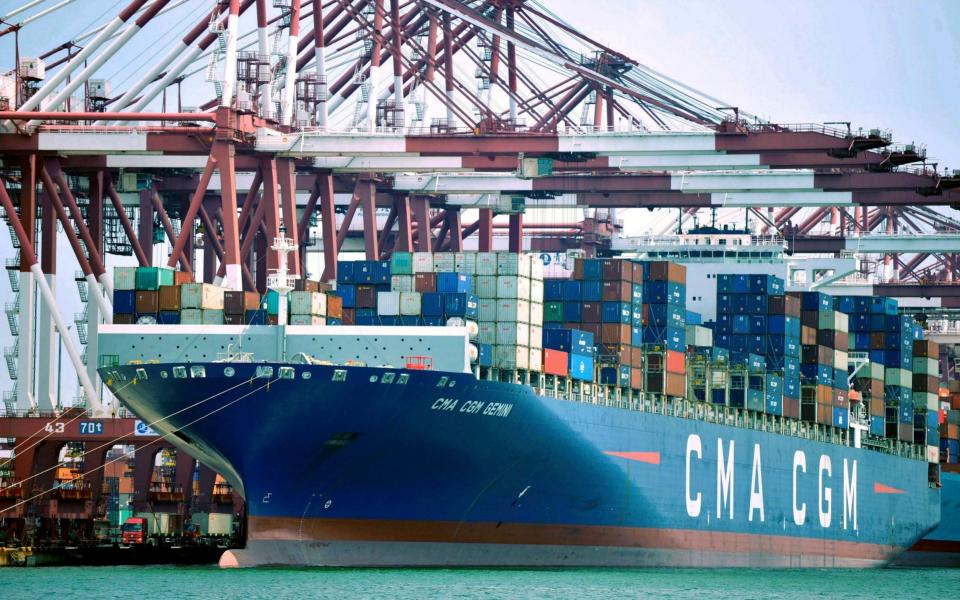Online shopping boom sends global shipping costs soaring

The shipping industry is enjoying a boom as China’s economy gets back to speed after the pandemic and coronavirus controls drive an online shopping surge in the West, pushing up transportation costs.
Prices for sending a standard 20ft shipping container – known as a Twenty Foot Equivalent Unit (TEU) – from China to Europe have soared from $730 in May when the virus caused international trade to collapse, to $4,400.
Costs have been further heightened by a combination of a shortage of shipping containers as ports get clogged up and disruptions to vessels’ sailing schedules, with crew changes thrown into chaos by Covid-19.
Jonathan Roach, container market analyst at shipbroker Braemar, said: “Coronavirus means people in Europe are not going out and spending money in the hospitality industry and are instead buying huge amounts of durable goods, creating huge demand on deliveries from Asia as factories there are now going full pelt.
“Covid restrictions with less people in ports mean that it's taking 20pc longer to turn around ships at ports, there are bottlenecks with supply of containers as they haven’t been returning to Asia.”
Braemar’s “boxship” index, which measures demand for container vessels, is now at a 12-year high, reading 124, having started 2020 at 88 and falling as low as 55 in June.
Shortages of containers began in the summer when shipping companies cancelled sailings as coronavirus ravaged Europe and the US. That meant empty containers that would normally be returned to Asia began building up in different locations.
Mr Roach described the situation as “temporary rather than structural” and said that rates would normalise as vaccines are rolled out globally in the second half of the year.
He said: “The container shipping industry had a terrible first half last year, a stronger second half, and this year is starting at record levels, but it looks unsustainable.”
Ship owners are able to ask for longer charter periods because of the demand, Mr Roach said, as they try to hold on to the higher rates for as long as possible.
Last summer they were looking at charters of three to six months, now some are seeking charter periods of two to three years, he added.
China’s economic recovery after Beijing deployed tough measures to beat the virus is also driving up prices for ships carrying materials to feed the country’s factories.
One example is deliveries of iron ore to feed China’s steel mills, which are responsible for about half of the 1.6bn tonnes of steel produced globally each year.
Braemar’s data showed that bulk carrier ships used to deliver iron ore mainly from Australia and South America are being chartered at rates of $20,000 per day, almost double the level of six months ago.
Henry Curra, head of research at Braemar, added: “These rates are not astronomical but they are very respectable and show the strength of China’s economic recovery.”
Japan is also roaring back. Braemar data showed LPG gas tankers carrying the fuel to power Japan’s economy are being charged at $2.5m per month, five times the cost of six months ago.
